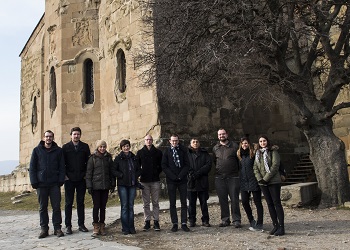People tend to take less risks during economic crises according to ISET’s Norberto Pignatti
- Details

Using the panel data on the German and Ukrainian labor markets, Prof. Pignatti and his co-authors Thomas Dohmen (University of Bonn, Maastricht University, IZA and DIW, Berlin) and Hartmut Lehmann (University of Bologna, IZA and DIW, Berlin) show that risk attitudes have permanent (exogenous) determinants that are valid at different stages of economic development and in different structural contexts. At the same time, they find that people tend to take less risk in bad times, such as during the Great Recession. This tendency to play it safe is reflected in reduced entry into self-employment. In other words, people prefer low-risk low-return jobs to starting high-risk high-return businesses. As a result, recovery from profound (and extensive) economic crises tends to be particularly hard.
ISET Launches a Three-Year Exchange Program with the University Of Lausanne
- Details

In early February 2016, ISET opened its doors to a group of 7 economics students and faculty from one of Europe’s top schools of business and economics, HEC at the University of Lausanne, Switzerland.
During their two-week stay at ISET, members of the Swiss delegation attended a course in Mechanism Design, taught by ISET’s senior academic advisor, Professor Motty Perry (University of Warwick). Additionally, they took part in a research workshop, to present and discuss their own research, as well as that of ISET faculty and students. The workshop involved senior scholars from Israel, Switzerland and the UK.










